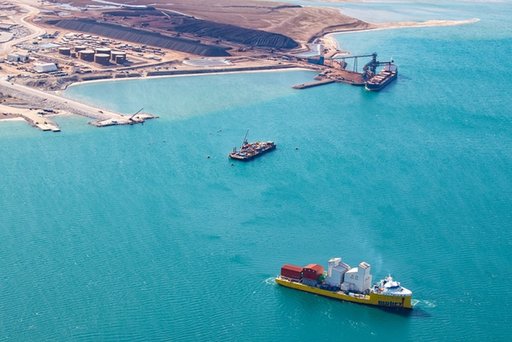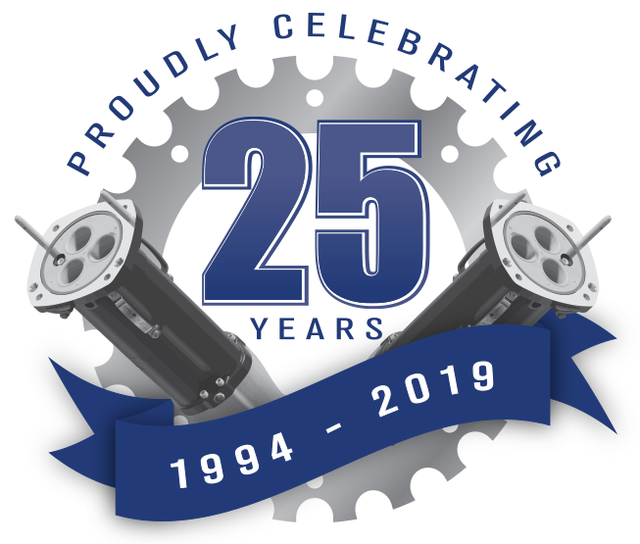Q&a | MAterials Handling
Bremerhaven to Baffin Island: Thyssenkrupp’s Canadian odyssey
German engineering multinational Thyssenkrupp is developing a new materials handling system for one of the most challenging and remote locations in the world, an iron ore port in northern Canada. Umar Ali finds out more from Thyssenkrupp’s external communications manager Isabel Reinhardt.


More than half of the country’s coal mines are managed by pro-Russian separatist militia.
Credit: DmyTo/Shutterstock.
Umar Ali: Can you tell us a bit about the project?
Isabel Reinhardt:
Baffinland Iron Ore Mines Corporation's Mary River mine is one of the world's richest iron ore deposits, with iron contents of more than 65%.
With a new material handling system from Thyssenkrupp, Baffinland aims to triple its material handling capacity to 12 million tonnes of iron ore per year. The project will generate major potential for the economic development of the region and create jobs for the local population. The first plants for the system were recently shipped, completely pre-assembled, from Bremerhaven to Baffin Island.
ThyssenKrupp teams from Germany, Canada and the US have pooled their know-how to develop the best solution for Baffinland. At the same time, proven technologies will guarantee the highest productivity even under extreme climatic conditions.
What can you tell us about the materials handling system?
Within the project, Thyssenkrupp supplies a complete system for the processing, storage and transport of iron ore.
This includes a complete railcar unloading station, a crushing and screening plant, a stockpile system including a combined stacker/reclaimer, a ship loader as well as a conveyor plant connecting all components.
When it goes into operation in 2021, the system will crush, screen and store the ore produced in the Mary River Mine all year round and load it onto Panamax or Capesize ships during the ice-free season.
What were the logistical challenges in shipping the equipment from Germany to Canada?
Few people outside Canada know much about Baffin Island, the fifth largest island in the world with a surface area of over 500,000km2 - almost 1.5 times the size of Germany - and a population of under 12,000.
One reason for the low population figure is the harsh climate roughly 600km north of the Arctic Circle. Spring arrives in mid-July and winter returns in September.
The port on Baffin Island is one of the most demanding locations in the world. It is only free of ice and accessible to shipping between the end of July and the beginning of October.

The system is being shipped from Germany to Canada. Image courtesy of Thyssenkrupp.
How were you able to overcome these challenges?
Due to the difficult logistical and climatic conditions on-site, the plants are pre-assembled at a total of four locations in Europe, Canada and the Middle East.
The first delivery including a crusher, a screening system and a railcar unloading station was shipped from Bremerhaven to Canada in July 2019.
While the railcar unloading station was preassembled in Stettin and transported to Bremerhaven, the crushing and screening system was assembled in Bremerhaven.
The crusher building is 23.5m wide, 33m high and weighs 1,470t. The screen building is 30m wide, 34m high and weighs almost 1,800t. The BigLift Barentsz reached port on Baffin Island with its roughly 5,500t freight in the beginning of August.
Two more cargo ships are scheduled to deliver conveyors during the current shipping season. The remaining units will be delivered in 2020.
How do you see the materials industry in Canada progressing in the future?
There is a clear trend in the steelmaking industry toward higher-quality ore. This growing demand plays especially well for Baffinland Iron Mines with its premium ore reserves.
On a more general level, the resource industry in Canada is on solid grounds as the global demand for base materials continues to be strong, fueled by the increasing world population.
This overall trend is subject to the normal cyclical fluctuations, but the trajectory of the industry remains strong.
“Queensland’s resources sector provides one in every five dollars in the Queensland economy, sustains one in eight Queensland jobs, and supports more than 15,400 businesses and community organisations.”

AusProof is celebrating 25 years of business in Australia in 2019.
